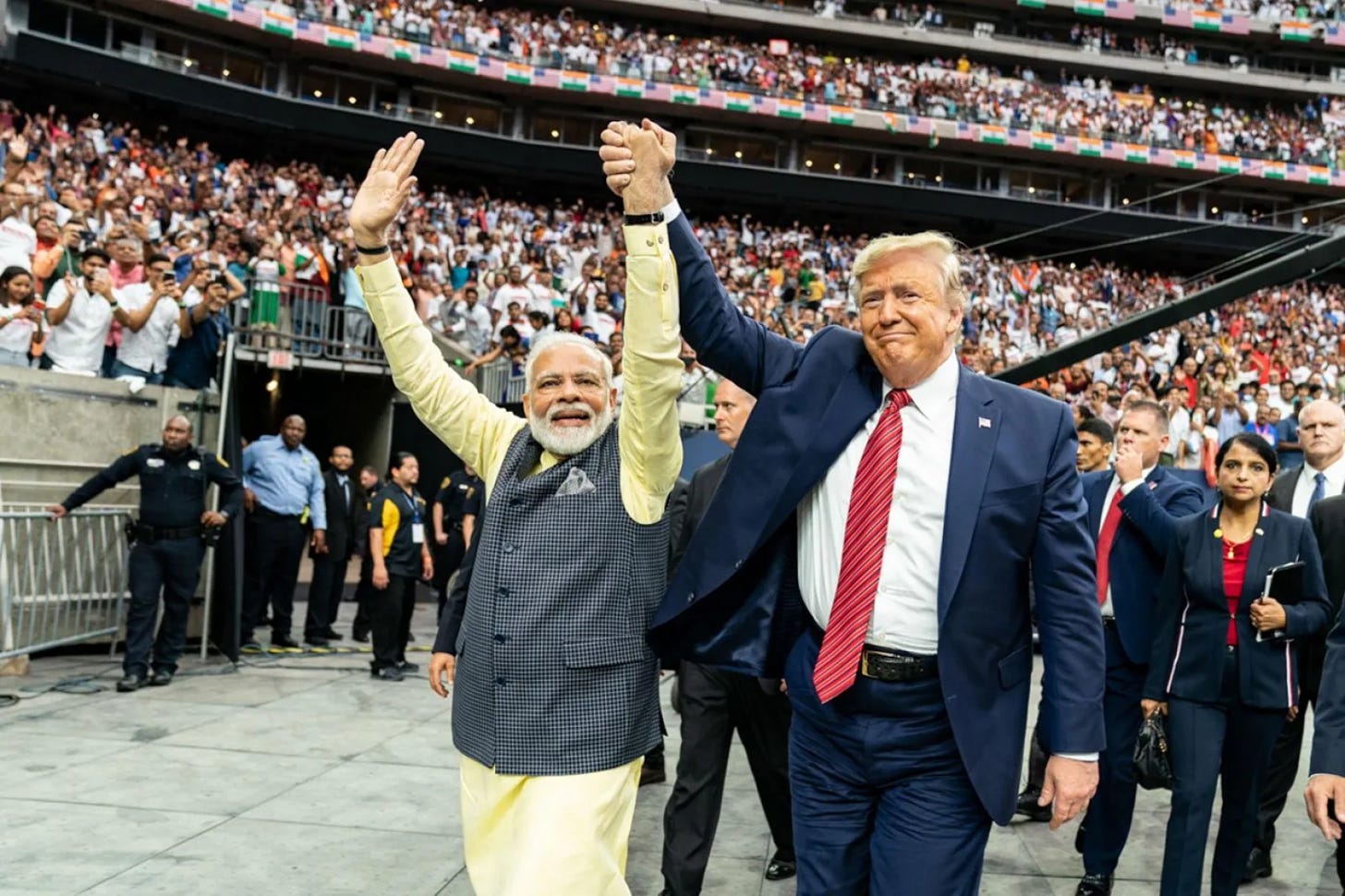Harris and Trump Share Global Views
Both Candidates Intend To Promote US Imperialist Interests

On 5 November, the people of the United States will head to the polls to elect their next president and legislators. The two leading contenders in the presidential race, Donald Trump from the Republican party and Kamala Harris from the Democratic Party are neck and neck in the majority of opinion polls so far, generating increased speculation on what the outcome will be and what impact their policies may have on the world.
With regards to South Asia, historically, the US has maintained relationships of a different character with countries in the region, and these relationships have rarely been impacted by a particular electoral outcome. Nevertheless, leaders and analysts in the region have attempted to calculate which particular party or candidate will be better for their foreign policy objectives.
In India, experts are divided. While Harris’ Indian roots have appealed to a large number of them, the current prime minister in India, Narendra Modi and his Hindu supremacist, ultra-right party Bharatiya Janata Party (BJP) seem to have greater bonhomie with Trump due to their common conservative beliefs. During the last election campaigns in 2019 Modi was even accused of canvassing for Trump during his visit to the country. Donald Trump made a historic visit to India in 2020 and was received with a massive “Namaste Trump” rally at a cricket stadium.
Nevertheless, their shared conservative beliefs do not necessarily translate to common ground on policies which impact the US-India relationship, such as trade, immigration and on geopolitical positions. And despite Trump announcing his administration would “strengthen our greater partnership with India” in a post on X, Trump’s high tariff policies would not benefit India, whose biggest trading partner is the United States. Additionally, in 2019, Trump removed India’s status in the Generalized System of Preferences (GSP) program which provides favorable trade conditions for certain items from certain developing nations. The GSP program then expired under Trump in 2020. Others seem to agree, claiming that if Trump emerges victorious it may give India more space and standing on geopolitical issues whereas a Harris administration would be better on issues of trade and immigration.
The situation is similar with most other countries in the region. Analysts from both Pakistan and Bangladesh note that Trump’s focus on domestic politics and his vocal pledge to turn away from foreign conflicts may be advantageous for their countries.
Speaking to Peoples Dispatch, Sharif Shamshir from the Workers Party of Bangladesh (WPB) claims that Democratic administration led by Joe Biden and Harris had been supportive to regime change forces in Bangladesh, referring to the recent resignation of prime minister Sheikh Hasina and formation of an interim administration under the leadership of Nobel Laureate Mohammad Yunus.
Shamshir claims that Yunus has close relations with Democratic party leadership which refused to criticize the violence and oppression of the opposition after Hasina’s ouster. Meanwhile, Trump condemned the violence against Hindus and other minorities in his post on Diwali on X, which according to the WPB activist, was largely a bid to court Hindu voters in the US. Indian Americans are the second largest immigrant community only after Mexican Americans, and there are some 2.6 million Indian Americans eligible to vote in Tuesday’s election.
Shamshir believes that, there is a possibility that a future Trump administration, mostly because of its stated focus on domestic issues, may not be interested in Bangladesh’s internal politics as much as the Biden administration has been.
“The difference is only in style”
However, the Left in the region broadly has a consensus over the fact that the US presidential election is ultimately a race without much meaning for the rest of the world. They particularly highlight the bipartisan consensus in the US on continuing policies which serve the imperialist interests of maintaining its hegemony over world affairs. They have noted that differences between Trump and Harris are superficial at most.
Prabir Purkayastha, editor in chief of the NewsClick, told Peoples Dispatch that whether it is Trump or Harris they “want the US hegemony over the world to continue” and they will never compromise on the basic objectives of the US foreign policy in West Asia, Russia, and China. They will neither let go of their so-called “rules based order” and continue to unilaterally violate and misuse international institutions.
Taimur Rahman of Pakistan’s Mazdoor Kisan Party concurs. He says that both the major candidates in the US elections, despite minor differences, have similar approaches to most of the major problems in world politics. Citing the example of “bipartisan consensus” over Palestine, Taimur says, “the people of the world can only conclude that on the most vital questions of world politics there is hardly any meaningful difference between the two candidates.”
Bappa Sinha, an Indian analyst, also agrees with Prabir’s point. “There seems to be a very high level of policy continuity between Democratic and Republican administrations on most important issues” which makes it doubtful that there will be any difference for South Asia or the world in general no matter whoever wins.
Whatever little differences between them, they are “simply stylistic” Prabir says. “For Trump, bullying is the new diplomacy. He believes that by bullying and threats, he can rebuild the hegemony of the US. Kamala Harris believes that the old methods of persuasion, threat of sanctions and good old-fashioned regime change can be reworked to achieve the same objective. The difference is only in style.”
However, Prabir concludes on a positive note claiming they are also similar because, “both have no comprehension that the world has changed irretrievably, and no amount of either bullying or clever diplomacy will restore either the Western hegemony over the world or the US as the sole hegemon.”



